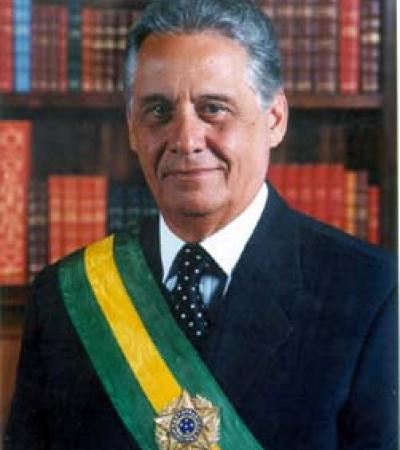Fernando Henrique Cardoso was president of Brazil for two consecutive terms, from January 1, 1995 to January 1, 2003.
An academic early in his career, Cardoso's commitment to democratic principles led to his exile in Chile after the Brazilian military coup of 1964. While abroad, he served the United Nations. He returned to Brazil in 1968 and taught at Universidade de Sao Paulo (USP), where he had taught as a sociologist before the exile. The following year, his earlier stand against the military rule led to his arrest, as well as a ban from teaching and the suspension of his political and civil rights.
Cardoso established the Brazilian Center for Analysis and Research (CEBRAP). The group gathered leading intellectuals to conduct independent research on contemporary social, economic and political questions, becoming an influential think-tank in Brazil and abroad.
Cardoso assumed the role of Senator of Sao Paulo in 1983 and was re-elected Senator in 1986. During Itamar Franco's presidency, he served as Minister in two capacities: Minister of Foreign Relations in 1992-93 and Minister of Finance in 1993-94.
Cardoso's own presidency has important legacies, including a decrease in the number of people living below the poverty line. He received an honorary Doctor of Laws degree from the University of Notre Dame in 1991. He and his wife Ruth have three children.






